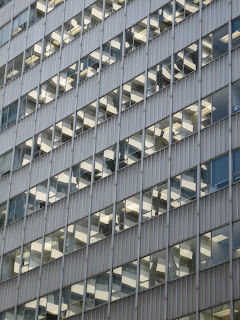The US has a huge budget deficit (about US$255 billion). This is (more) understandable during a recession, but has been growing in size for the last ten years during the boom years, and is a serious threat to US economic (and political) health. Either taxes need to rise or spending to fall, or (most likely) both. For those who go into
anaphylactic shock over tax increases, the Centre for American Progress has put out an
interesting report that shows how the budget could be balanced without raising taxes. However, it is not a pretty sight. Cuts include: three quarters of agricultural subsidies; ninety-five billion from defence (including significant reductions for operations in Iraq and Afghanistan and reductions in standing nuclear capacity; in all almost a 15% reduction); reductions to social security payments; no new highways; subsidies for fossil fuel and nuclear research reduced by 90%; significant reductions to international aid, correctional services, customs and border enforcement, health research, NASA, National Parks, FEMA, agricultural research, EPA and much, much more.
The report conclusion is worth posting:
"Well, that was miserable.
"Perhaps there were moments of joy for you when some particular cut struck a chord, or dealt with a long-disliked program. Maybe you’re a pacifist and reducing the number of men and women in arms and cutting down weapon systems is deeply satisfying. Or perhaps you think that highways ought to be paid for by local governments that put tolls on them or that we spend too much on health research.
"But it’s evident that cuts of the scope and magnitude we have laid out really will do harm to the country, especially for the plans that cut the most. They are cuts that we’ll end up paying for one way or another. We may pay for them in delays at the airport or in the emergence of a new disease without a cure. It may cost us in traffic jams and rough roads or in unsafe food. It may mean lower economic growth as the infrastructure crumbles, education suffers, and investments in research and the technologies of the future languish. Or our armed services may be late-arriving at an international hotspot. Whatever the consequences, and you can go through the list and imagine them, there will be some. And as bad as the consequences might be from what we’ve outlined here, the consequences from the alternatives we considered were, in our view, worse.
"But these are, in fact, the kinds of choices we’re going to have to make. Are we
going to cut or are we going to raise taxes? What cuts? What taxes?"
They challenge anyone who disagrees with what they suggest cutting to come up with equally detailed suggestions. The point is, even the rosiest expectations about growth over the next few years still leaves the US in deep financial trouble. It could well be much worse. It's all very well criticising big government, but if you want it to shrink, you have to be willing to point out precisely where.
H/T Joe.












